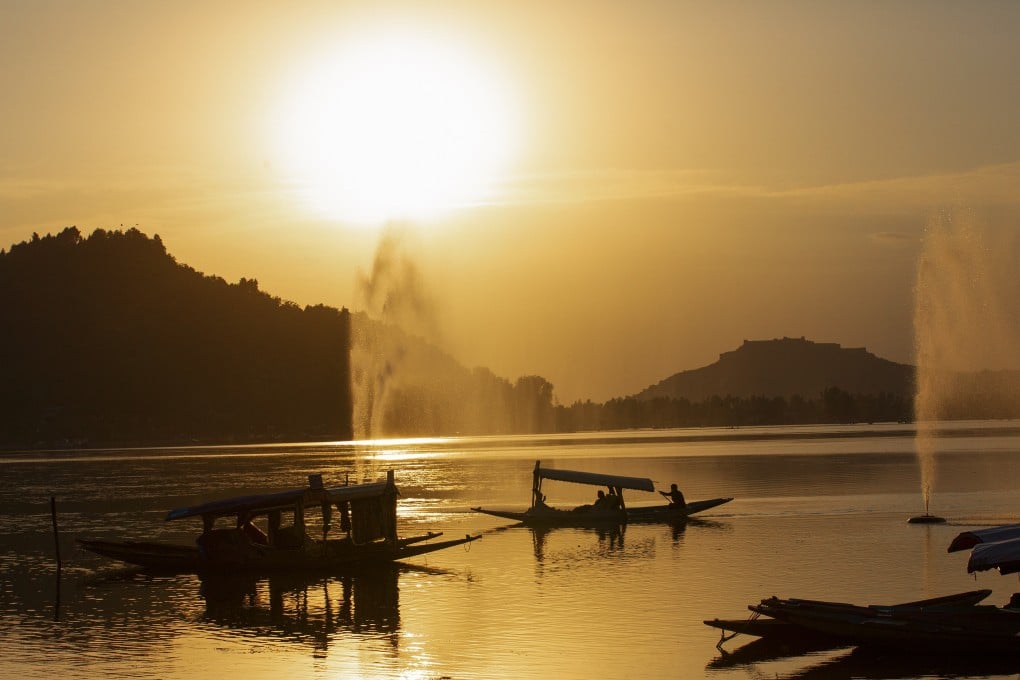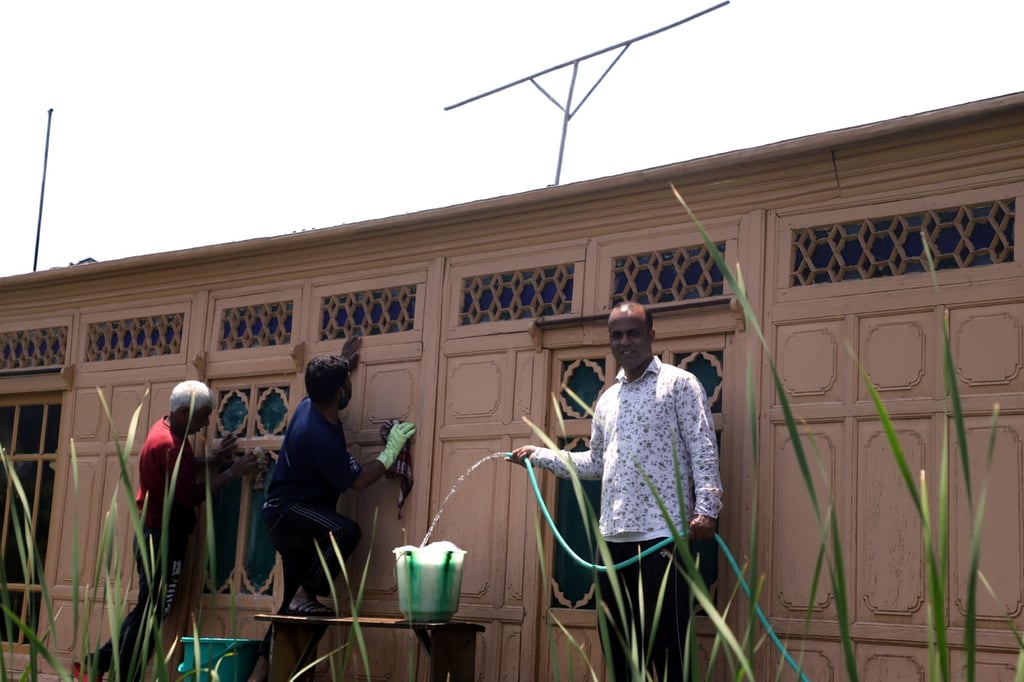‘All will disappear’: sun sets on Kashmir’s traditional houseboats as tourism, and Dal Lake, dry up
- There have been houseboats on Dal Lake in Srinagar since the 1860s, with more modern, palatial vessels attracting a slew of high-paying tourists in happier times
- But a combination of politics, environmental protection and the coronavirus pandemic have conspired to mean the famed floating hotels’ days may now be numbered

High in the foothills of the Himalayas, on a lake ringed by Mughal-era gardens, Imtiyaz Ahmad and two other Kashmiri men were hard at work earlier this month cleaning a sumptuous cedar-wood houseboat.
There have been houseboats on the lake in Srinagar since at least the 1860s, though in the early days they would have looked quite different from the palatial vessels filled with chandeliers, carpets and intricately carved furniture that not so long ago could earn their owners as much as 30,000 rupees (US$410) a month from paying guests.

Ahmad’s ancestors have been involved in the houseboat business on Dal Lake since the 19th century, he said, but over the past two years he has been forced to sell vegetables by the lakeside for “a few pennies” just to make ends meet and feed his family of five.
He is not alone. The Kashmir Chamber of Commerce and Industries estimates the region has missed out on some US$5.3 billion in revenue since it was stripped of its special status, with about half a million jobs lost in the 12-month period that followed. A significant portion of the revenue that was lost would have otherwise gone to the houseboats’ owners.